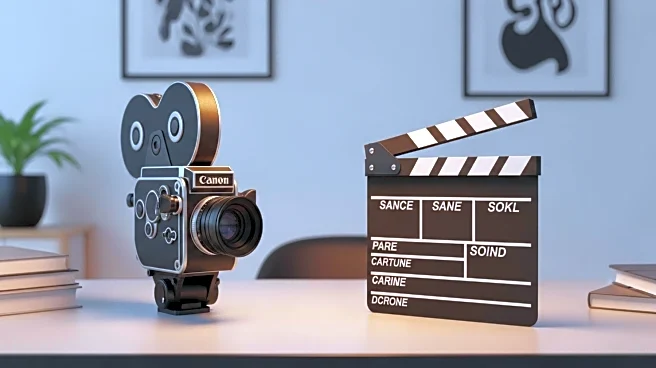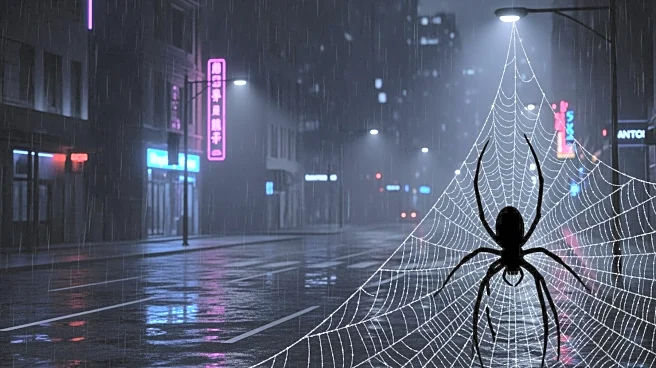What's Happening?
Daniel Roher, known for his Oscar-winning documentary 'Navalny', is making his narrative film debut with 'Tuner'. The film is a high-concept drama that follows a piano tuner, Niki White, who becomes involved in safecracking. Roher faced a steep learning curve transitioning from documentaries to scripted storytelling, but he leveraged his documentary experience to bring a polished filmmaking style to 'Tuner'. The film features a cast including Dustin Hoffman, Jean Reno, and Havana Rose Liu, and is set to premiere at the Toronto International Film Festival.
Why It's Important?
Roher's transition from documentary to narrative filmmaking marks a significant shift in his career, showcasing his versatility and ability to adapt to different storytelling mediums. This move could influence other documentary filmmakers to explore narrative filmmaking, potentially diversifying the types of stories told in cinema. The film's premiere at a major festival like TIFF highlights its potential impact on the film industry, drawing attention to Roher's unique storytelling approach and the film's exploration of themes like love, loss, and perfect pitch.
What's Next?
Following its premiere at the Toronto International Film Festival, 'Tuner' may attract attention from distributors and audiences, potentially leading to wider release and critical acclaim. Roher's successful transition could open doors for future narrative projects, expanding his repertoire and influence in the film industry. The reception of 'Tuner' will likely impact Roher's career trajectory and the opportunities available to him in both documentary and narrative filmmaking.
Beyond the Headlines
Roher's narrative debut explores deeper themes of identity and sensitivity, reflecting his personal experiences and creative challenges. The film's focus on hearing and being heard resonates with universal desires for understanding and appreciation, offering audiences a poignant exploration of human connection. The collaboration with acting legends like Dustin Hoffman also highlights the film's potential to bridge generational gaps in storytelling and performance.









